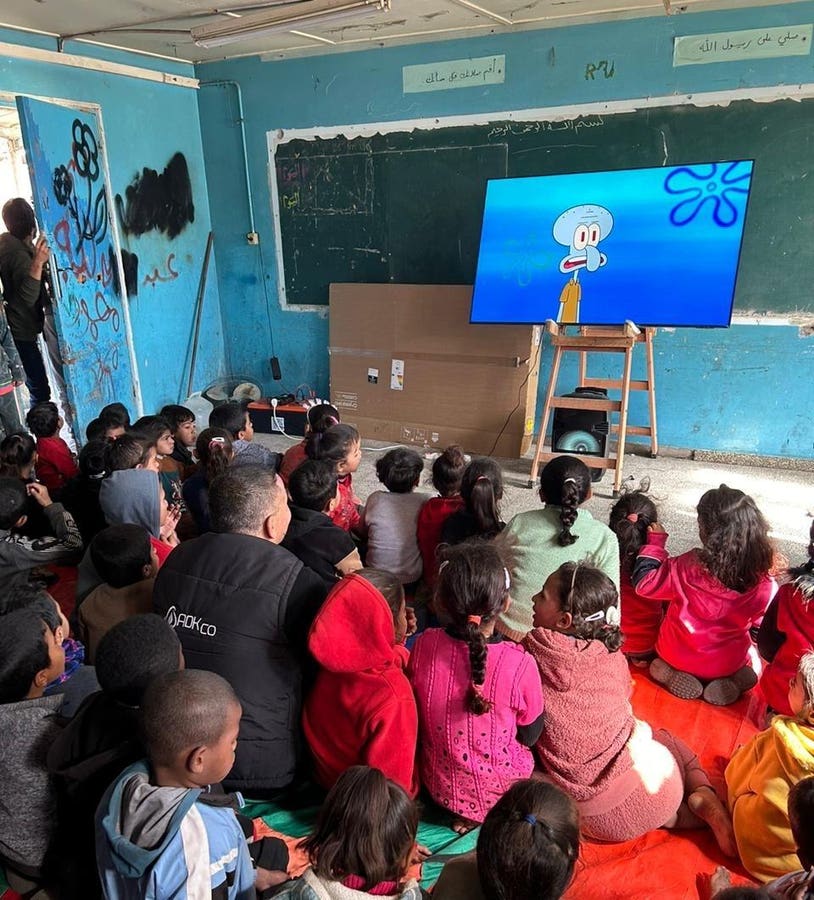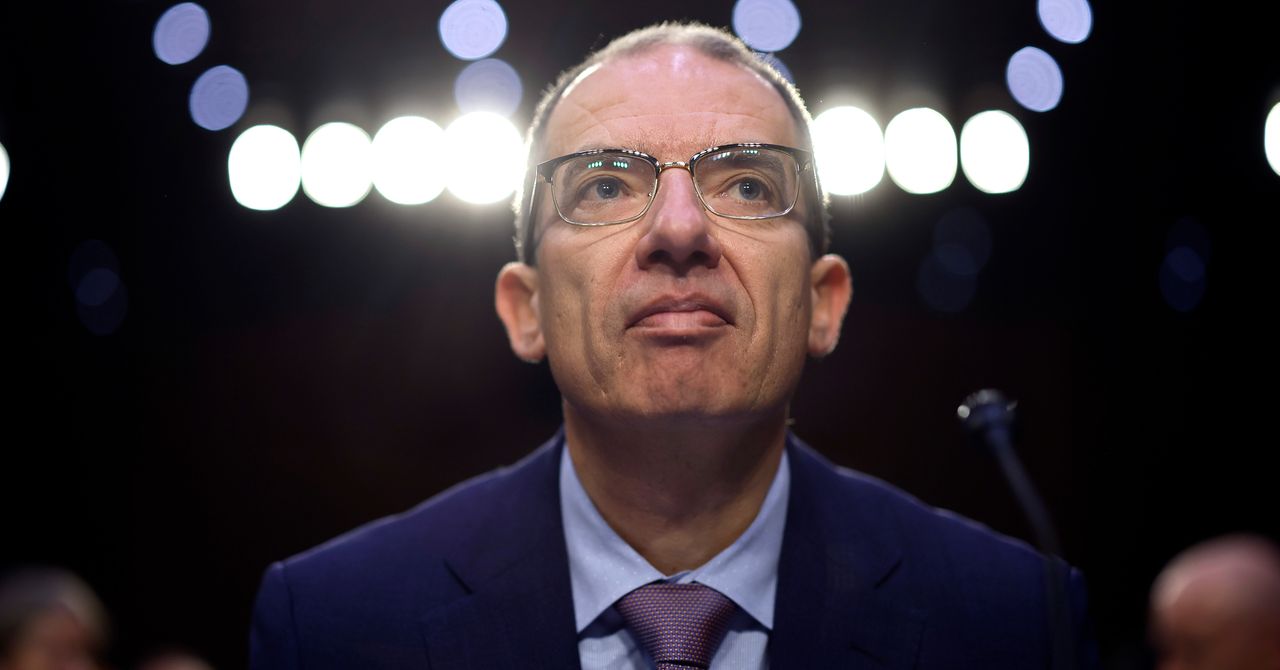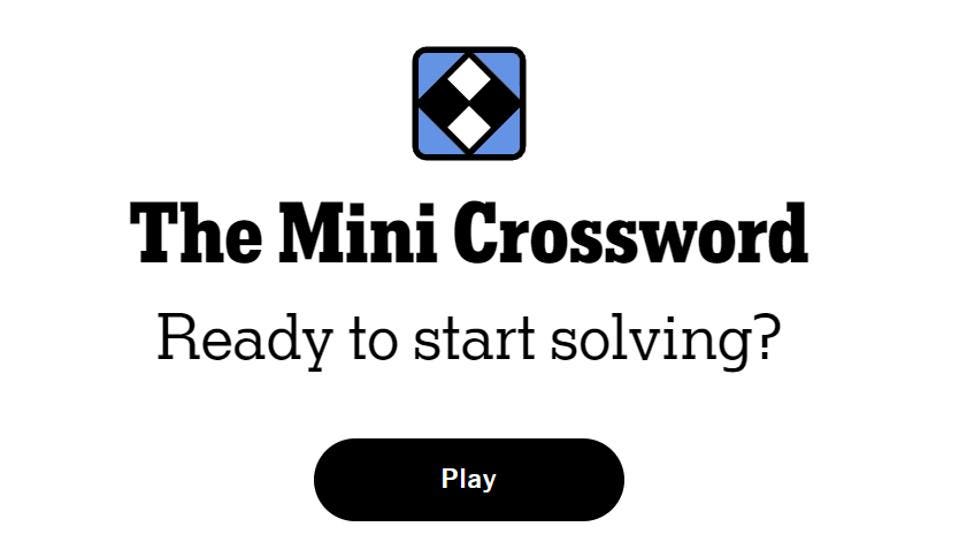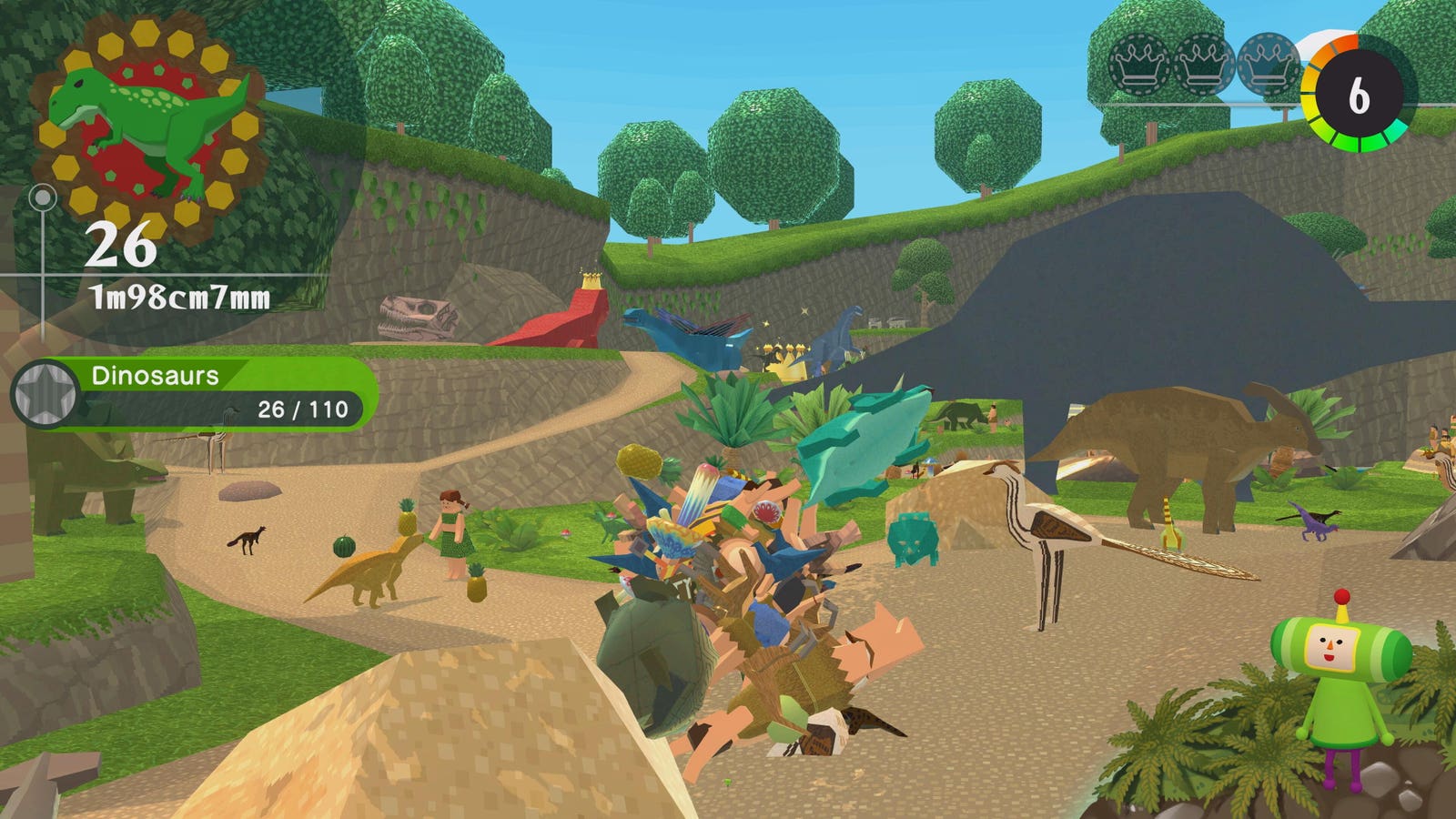The Abushawish mobile cinema
Omran Abushawish
Amidst the horrors engulfing Gaza, including mass starvation, it may seem that entertainment is the last thing on anyone’s mind.
But Ahmad Abushawish feels differently. The enterprising teenager, who was in his last year of high school when the Israel-Gaza war started in 2023, has started a number of projects instead of entering medical school, as he’d previously hoped. He’s become a journalist, writing for publications including We Are Not Numbers, which publishes the accounts of emerging Palestinian writers.
Another idea stemmed from seeing how his baby sister Aleen was being tormented by mosquitos. Yet insect repellent wasn’t available in pharmacies due to Israel’s blockade of Gaza. So he set out to find the ingredients and make an insect repellent himself. After testing a few versions on himself, he started to apply the lavender-scented repellent to Aleen’s skin, which gave her some relief. He even started selling the product to others, though it’s no longer possible due to the lack of raw materials.
Abushawish also tried to take up barbering, in his search for a job that he could do with Gaza’s spotty internet. For four months, he studied under a relative with barbering experience. He then felt ready to provide his services on the street. Yet this fledgling business barely brought in any money, and he had to give it up.
A more successful endeavor was, unexpectedly, a mobile cinema. Abushawish’s family fled to Rafah in early 2024. They returned several months later to Al-Nuseirat, a refugee camp in the middle of the Gaza Strip where Abushawish has lived his whole life. Israeli forces attacked the camp multiple times in 2024, including in a raid with the stated goal of rescuing four Israeli captives. The offensive ended up killing three other Israeli captives, along with at least 274 Palestinians, according to Al Jazeera.
Once they returned to the hollowed-out camp, the Abushawish family bought a small solar panel system to power basic appliances. Eventually this included a small TV in their living room, where the family of 7 would gather to watch cartoons including “Tom and Jerry” and “Masha and the Bear.” Children from other homes in their building came to join them, then neighbors.
Seeing the joy lighting up the kids’ faces, Abushawish realized that he had to expand from the living room into the backyard. He brought sawhorses to a carpenter to fashion into a TV stand. The Italian NGO Vento di Terra provided a bigger screen and stronger battery.
This was a family initiative. His mother started to hand out popcorn or other snacks, making the cinema feel even more special. His father, a psychologist, realized the psychological benefits of providing this kind of mental escape to traumatized children. His brothers and cousins helped to set up screenings in shelters, schools, and a hospital, transporting their new setup. Abushawish patiently downloaded films whenever internet was available. He transferred them to a flash drive and plugged it into the screen. “It was a simple but effective method, especially given the challenges with internet and electricity here,” Abushawish says.
Like so many projects in Gaza, the cinema couldn’t keep going. The solar panel was damaged in an Israeli airstrike, and the screenings stopped after five months. Abushawish says, “I faced many challenges — including the demands of my own schooling and, more critically, the constant bombings that targeted the very places we used to visit, such as schools and hospitals.”
The damaged Abushawish solar panel
Ahmad Abushawish
Now, survival dominates. There is “no food to eat, no cash to buy necessities, no gas to cook, and no medicine for treatment,” Abushawish says. His family lives on one meal a day at most. Eventually, they hope to leave Gaza, though this depends on the reopening of the Rafah crossing and the ability to raise enough funds for the journey.
Still, Abushawish wants to reopen his cinema. His family is currently seeking funds to purchase equipment to replace the damaged solar panel, refurbish the mobile TV system, and train volunteers in psychological first aid. They’re aiming to hold two screenings each month in schools and tent camps.
Given the grinding hardships of life in Gaza, does a portable movie theater matter? Abushawish is certain that it does. He says, “Through this initiative, we aim to help [children] reconnect with a sense of normal life — even if just for two or three hours. It’s a small window where they can escape the harsh reality around them and feel like kids again.”









